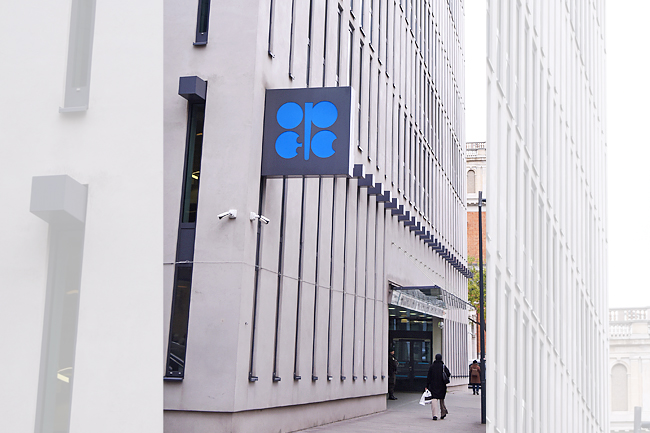LONDON (AFP) – Despite slashing oil production for months on end and announcing new cuts in late November, the Organization of the Petroleum Exporting Countries (OPEC) and its 10 allies have struggled to boost flagging prices.
Moreover, the OPEC+ group faces pressure on multiple fronts, as rising United States (US) crude production, a looming transition away from fossil fuels, and reports of discord among members have added to the challenges.
Prices are sitting at their lowest level in nearly six months despite the cartel’s announcement in November to further cut output.
They have jumped in recent days as cargo shippers and oil firms said they will avoid using the Red Sea and Suez Canal because of drone and missile attacks by Huthi rebels. But they still remain below USD80 a barrel.
Nevertheless, crude prices remain above the average of the past five years.

In an effort to prop up prices, the OPEC+ alliance has implemented supply cuts of more than five million barrels per day (bpd) since the end of 2022.
After nearly striking USD100 in September, the alliance’s strategy has since fallen short of reversing a slide.
While Riyadh blamed speculators for the drop, rather than weak demand, analysts say the cartel’s lack of unity has fuelled scepticism about their latest announced cuts.
“If the supply cuts went broadly unheard it is because the latest discussions showed frictions at the heart of the group,” Swissquote analyst Ipek Ozkardeskaya told AFP.
Angola and Nigeria expressed dissatisfaction with their production quotas at the November ministerial meeting, which had to be postponed for several days because of disagreements.
Furthermore, the OPEC+ alliance was unable to agree on a group-wide production cut that all 23 members would have supported.
Instead, heavyweights Saudi Arabia and Russia only managed to garner support from six other members in a bid to voluntarily reduce output.
Yet, “unity is what’s needed to give a stronger legitimacy to the group” and its decisions, said Ozkardeskaya.
Founded in 1960, the 13-member OPEC cartel in 2016 partnered up with 10 other producers to form OPEC+ to gain more clout.
But the group’s enlargement has proven to be “a double-edged sword”, noted Ozkardeskaya, with decision-making becoming more difficult.






